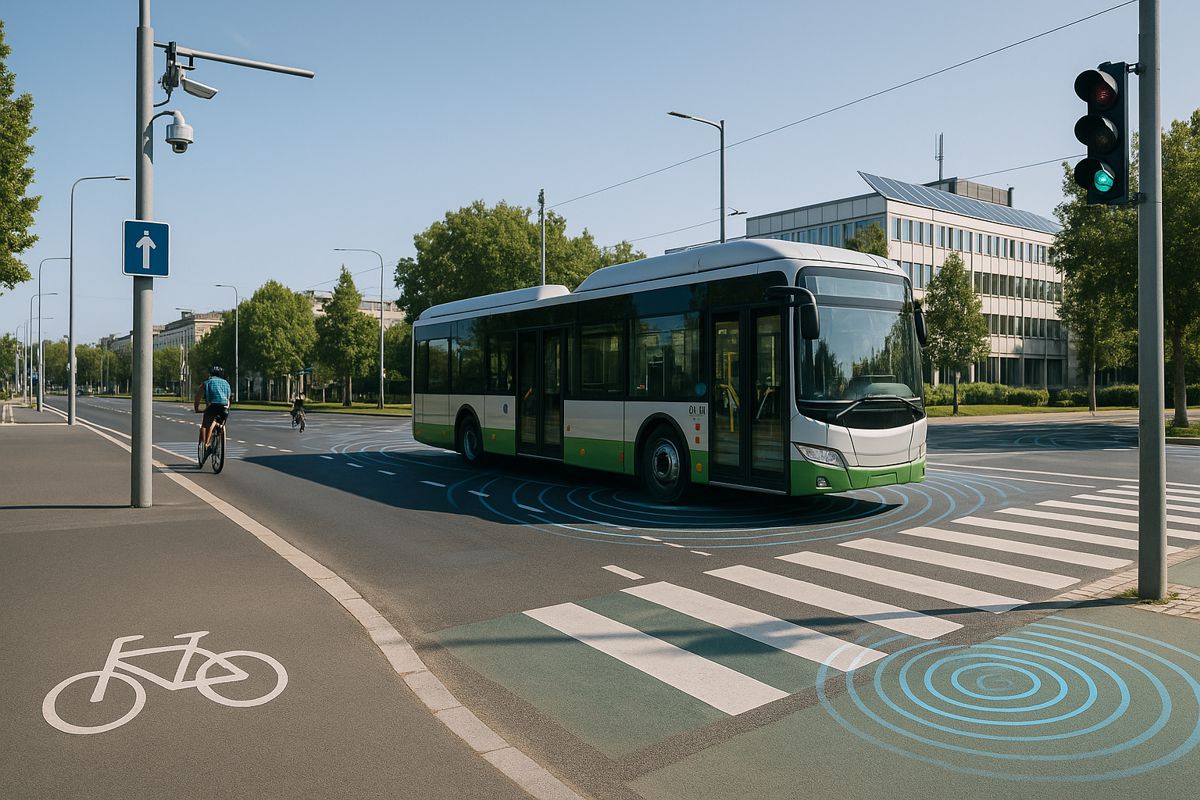Innovating Urban Mobility with Kapsch TrafficCom and Spain’s Mobility Lab
Spain’s Basque Country has long earned admiration as a crucible for industrial brilliance, high‑tech engineering and forward‑thinking urban development.
Now, with Kapsch TrafficCom officially joining the prestigious Vitoria‑Gasteiz Araba Mobility Lab Foundation, the region strengthens its reputation as a bold testbed for the future of smart, sustainable and connected transportation.
This development isn’t merely symbolic. It represents another powerful step toward reshaping how Europe designs mobility systems that serve residents, boost regional competitiveness and accelerate climate‑neutral ambitions.
Pioneering mobility ecosystems
The Vitoria‑Gasteiz Araba Mobility Lab Foundation is recognised as a leading innovation hub in Europe’s mobility landscape. It provides real‑world testbeds, advanced research facilities and a collaborative environment where industry, academia and government come together to pilot emerging transport technologies.
Its focus stretches across urban mobility, logistics, digital platforms, clean transportation and automated traffic systems. The Foundation operates in a city internationally recognised for sustainability leadership, as Vitoria‑Gasteiz holds titles such as European Green Capital (2012) and Global Green City (2019). It is also a flagship participant in the EU’s Climate‑Neutral and Smart Cities programme.
Joining this influential network positions Kapsch TrafficCom at the heart of one of Europe’s most ambitious mobility ecosystems, opening the door to pioneering trials, collaborative R&D and deployment of advanced mobility technologies.
Juan Zamakona, Kapsch TrafficCom’s Managing Director for Spain and Portugal, expressed his enthusiasm: We are very proud to be part of this foundation. Over the years, we have established strong partnerships in Vitoria‑Gasteiz, and this is a great opportunity to deepen our support for the historic territory of Álava, making travel smoother, safer and more efficient for everyone.
Vitoria‑Gasteiz
The Basque mobility cluster has earned global recognition for excellence in automotive innovation, EV infrastructure, advanced manufacturing, smart transport research and energy transition leadership.
Vitoria‑Gasteiz, acting as the regional nucleus of sustainability and technology adoption, offers:
- Live‑urban test zones for next‑gen mobility
- A city‑wide focus on active travel, public transport and traffic optimisation
- Local government leadership committed to climate action
- A robust industrial and research base
This mobility laboratory isn’t theory. It’s a functioning urban environment primed for innovation, and that is precisely where leading mobility partners want to be.
Kapsch TrafficCom in Spain
Kapsch TrafficCom isn’t new to the region. The company has supported several key mobility and traffic modernisation projects across Vitoria‑Gasteiz over recent years.
Among the most notable is the connected‑vehicle bus priority pilot scheme, designed to:
- Reduce delays and improve journey reliability
- Optimise public transport efficiency
- Enhance the passenger experience through smoother travel
This initiative leverages vehicle‑to‑infrastructure communication to allow buses priority at signals, reducing congestion, energy use and wait times. Early pilots across Europe have shown measurable improvements in transit punctuality, and Vitoria‑Gasteiz seeks to replicate and extend these benefits.
Beyond buses, the city has deployed intelligent traffic management platforms and mobility data systems, supporting a more fluid and responsive transport network.
Mobility’s role in regional prosperity
The Basque economy is built on manufacturing strength, world‑class engineering and global export success. The region contributes significantly to Spain’s industrial machinery exports, with goods exports representing more than 37 percent of Basque GDP.
Across sectors such as automotive technology, industrial machinery, capital goods and transport systems, Álava and wider Euskadi serve as engines of European innovation.
Kapsch’s Zamakona emphasised mobility’s strategic importance: Mobility is a key factor for growth in this region, whether it is to transport goods efficiently or to support the technology and industrial sectors. We look forward to bringing our global and local expertise to projects that drive sustainability, digitalisation and smarter transport.
With cutting‑edge EV manufacturing, energy storage research hubs and mobility technology clusters, the region is transforming itself into a reference point for green industrial innovation.
A shared vision
The Mobility Lab’s board of trustees recently approved including Kapsch TrafficCom, alongside Michelin, as the first private‑sector participants. Their addition marks a decisive step towards deepening cross‑sector collaboration, bringing together technology providers, mobility operators, urban planners and industrial leaders.
This move highlights a shared mission across the mobility industry: build efficient, low‑emission, data‑driven transport systems that empower cities and support sustainable economic growth.
Kapsch TrafficCom
Kapsch TrafficCom is a global leader in intelligent mobility technologies spanning tolling, connected transport, smart traffic control and congestion management. Its portfolio enables cities and transport authorities to manage networks efficiently, improve environmental performance and enhance road safety.
The company delivers full‑lifecycle transport systems via its one‑stop‑shop model, covering components, systems design, delivery, and long‑term operations.
Kapsch TrafficCom operates in more than 50 countries, with headquarters in Vienna and branches in over 25 markets. With more than 3,000 staff, it generated EUR 530 million in annual revenue in its 2024/25 financial year.
Basque mobility leadership
Globally, mobility innovation hubs compete fiercely to attract expertise and investment. Vitoria‑Gasteiz’s model sets a benchmark for integrating:
- Citizen‑centric mobility planning
- Clean and active transport adoption
- Real‑world industrial collaboration
- Climate‑neutral urban development
- Research‑driven smart mobility pilots
Cities such as Helsinki, Vienna, Copenhagen and Amsterdam are often spotlighted for smart mobility leadership. Increasingly, Vitoria‑Gasteiz is earning a place in that same league.
Powering a smarter future
Kapsch TrafficCom’s membership strengthens the Foundation’s ability to scale impactful mobility solutions and accelerate Europe’s shift toward decarbonised, technology‑enabled transport networks.
With sustainability at the core of regional policy, smart transport solutions are poised to support:
- Urban decarbonisation strategies
- Reduced congestion and pollution
- Efficient logistics and freight movement
- Connected and autonomous vehicle readiness
- Data‑driven mobility operations
Kapsch TrafficCom’s entry into the Spanish Mobility Lab represents more than a strategic partnership. It reinforces a shared belief that cities can evolve into cleaner, smarter and more efficient mobility environments through collaboration, innovation and thoughtful investment.
As Europe accelerates its journey towards climate‑neutral transport, partnerships like this will shape the roads, buses, logistics systems and digital networks of tomorrow.





























